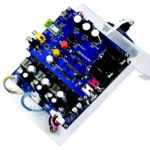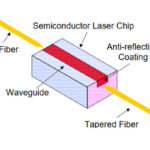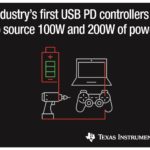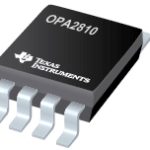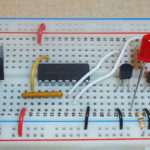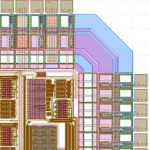STMicroelectronics’ TSV792 dual 5V operational amplifier (op-amp) combines 50MHz gain-bandwidth with precision attributes including low input offset voltage and extremely low input voltage noise of just 6.5nV/√Hz. The typical 50MHz gain-bandwidth product enables accurate amplification of high-frequency signals. Adding a fast slew rate of 30V/µs, the TSV792 is suited to photodiode-signal conditioning in battery-powered smoke detectors. […]
Amplifiers
Sound design considerations for Class D amps
The first two FAQs in this series, “Class D Amplifiers for High-Efficiency Switched-Mode Sound” and “Class D Audio – Why Now?” focused on basic Class D amplifier topologies, modulation techniques, general component and technology advancements that have made Class D amplifiers an increasingly viable option, and the evolving tradeoffs between silicon and GaN power devices. […]
Waveguide-to-waveguide transitions deliver minimal loss and VSWR as low as 1.08:1
Fairview Microwave Inc., an Infinite Electronics brand, has launched a new line of waveguide transitions that operate from 5.85 to 110 GHz across 14 frequency bands. These waveguide adapters are ideal for high power wireless applications such as test benches, instrumentation, MILCOM, SATCOM, telecom and radar applications where signal strength and integrity are critical. Fairview’s […]
Optical amplifiers, Part 2: Basic implementations
Part 1 of this FAQ began an overview into the arcane world of all-optical amplifiers including where and why they are needed. Part 2 will briefly describe the four types and identify the two most commonly used for optical-fiber link signal boosting. Q: How “accurate” will this presentation be? A: Frankly, it will have large-scale […]
Isolated amplifier enables more accurate measurements of ±10-V signals
Texas Instruments introduced a new reinforced isolated amplifier that features the industry’s highest precision and working voltages, and longest lifetime reliability. With exceptional performance that includes better nonlinearity, lower offset and gain error, and higher temperature stability, the ISO224 allows engineers to overcome performance limitations and design high-precision systems. The new amplifier is designed for […]
USB Type-C and USB Power Delivery controllers source up to 200 W
Texas Instruments introduced two new USB Type-C and USB Power Delivery (PD) controllers, with fully integrated power paths to simplify designs, minimize solution size and speed time to market. The TPS65987D and TPS65988 offer system designers the industry’s highest level of integration which can reduce design complexity and overall cost. The devices are the industry’s […]
High-voltage amplifiers optimized for error-sensitive apps
Texas Instruments (TI) today introduced three new amplifiers with a unique combination of high speed and high precision, allowing designers to create more accurate circuits for error-sensitive applications. The new devices support more precise measurement and faster processing of a wide variety of input signals in test and measurement, medical, and data-acquisition systems. To learn […]
Analog Top Talks in May on EDABoard.com forums
Peer-to-peer, engineer-to-engineer questions and answers from the EDABoard.com engineering community around analog ICs and analog design. Click the “Read more” link and follow the entire conversation and maybe add your two cents by logging in to EDAboard.com. Signal generator instability – I have built this signal generator and I have noticed that is quite stable on […]
Getting started in electronics: core components
By “Spec“, Electro-Tech-Online forum member Often newbies ask, ‘How can I get started in electronics?‘ This is a big question, but the very short answer is, ‘Learn the two fundamental electronics laws (Kirchoff, Ohm), get a good book about electronics theory and practical, build some circuits, and make some measurements.’ Follow-on questions are, ‘What electronic […]
Top 10 Electronics Inventions
I don’t mean the transistor radio or mobile phone, but electronic devices and circuits that have been significant and enduring. Some are not necessarily “inventions”, depending on how you define an invention, but significant designs, devices or techniques. It will depend on your area of interest (and age). You might think the GaAsFET was the […]


